Photographs: Hat 600/Wikimedia Commons. K J M Varma in Beijing
China has spent about $6.1 billion in the last 20 years on its manned space programme sending 10 spacecrafts into orbit, but that amount would just be barely enough to build 78 km of subway system, a study of the spiralling costs of the metro rail system by state-run China Daily said.
...
Metro rail costlier than space travel: Chinese planners
Image: Beijing Subway.Photographs: Hat600/Wikimedia Commons.
Concerns about subway construction and expansion are mounting in China as 28 more cities have been permitted tobuild underground metro rail by 2015 spanning to 2,500 km.
...
Metro rail costlier than space travel: Chinese planners
Image: Beijing Subway.Photographs: Prinz.W/Wikimedia Commons.
"The construction will cost at least one trillion yuan (over $156 billion) in total," Chen Xunru, a member of theChinese People's Political Consultative Conference, who conducted the research into subway construction said.
Experts are concerned that the construction could strain the resources of some cities and plunge them heavily intodebt.
They are also worried that the cities may not have taken account of the possible long-term costs of operating andmaintaining the network.
...
Metro rail costlier than space travel: Chinese planners
Image: platform of Weigongcun Station of Line 4, Beijing Subway.Photographs: Hat600/Wikimedia Commons.
China's first subway went into operation in Beijing in 1969 followed by Tianjin, Shanghai and Guangzhou. "Subways have many advantages, including large-volume transport capacity, high efficiency levels and low energyconsumption.
They can also save land and boost economic development along the line."Big cities regard subways as an important means of reducing traffic congestion and upgrading their image," Chensaid.
...
Metro rail costlier than space travel: Chinese planners
There are also annual operating and maintenance costs," Yang Di, a manager at Shanghai Shentong Metro Group Co, which owns the Shanghai Metro and is the parent company of the listed Shanghai Shentong Metro Co.
The fact is that it's difficult to make money from subway operations, and only Hong Kong's metro system is profitable, he said.
...
Metro rail costlier than space travel: Chinese planners
Image: Line 10 Platform of Jiaotong University Station, Shanghai Metro.Photographs: Baycrest/Wikimedia Commons.
It has China's longest subway network, with 11 lines totalling 425 km, which is longer than New York (370 km) andcatching up with London (439 km).The network is set to reach 570 km by 2013 and 877 km by 2020.
The city has the globe's fifth-busiest metro network - following Tokyo, Seoul, Moscow and Beijing - with 2. 1 billion passengers in 2011, but the annual income it generates is insufficient to support itself.
...
ro rail costlier than space travel: Chinese planners
Image: AC09 electric motor coach.Photographs: Kgbkgbkgb/Wikimedia Commons.
The income from ticket sales and advertising covers its daily operating costs, but is not enough to pay formaintenance or the interest on its loans.
The city's other lines are in debt. Chen said that the interest on bank loans cost the municipal government several billion yuan, not to mention the cost of construction and other outlay.
...
Metro rail costlier than space travel: Chinese planners
Image: Interior of Shmetro Line 2 Train.Photographs: Baycrest/Wikimedia Commons.
According to a Xinhua news agency analyst, the total liabilities of the Shanghai metro exceed $15 billion. Beijing, with a population of 20 million, has 372 km subway, which will be extended to 440 km by the end of the year and to 1,050 km by 2020.
...
Metro rail costlier than space travel: Chinese planners
Image: Line 7 Platform of Changqing Road Station, Shanghai Metro.Photographs: Baycrest/Wikimedia Commons.
If depreciation and accounting costs are included, the loss will hit at least $2.6 billion, he said.

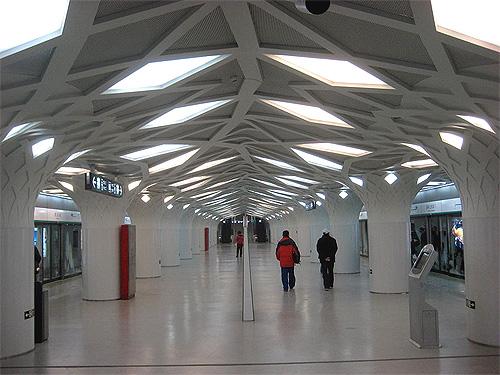
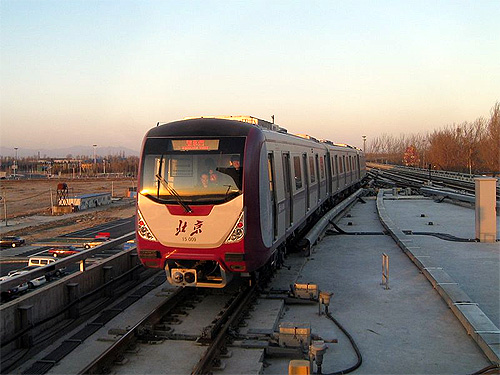

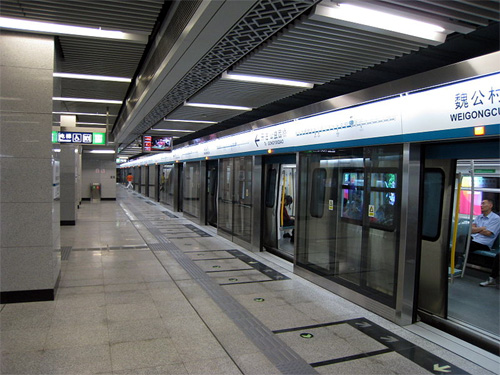
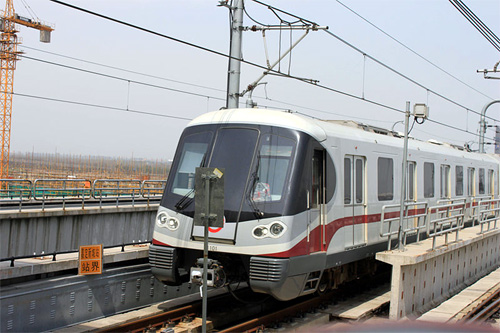
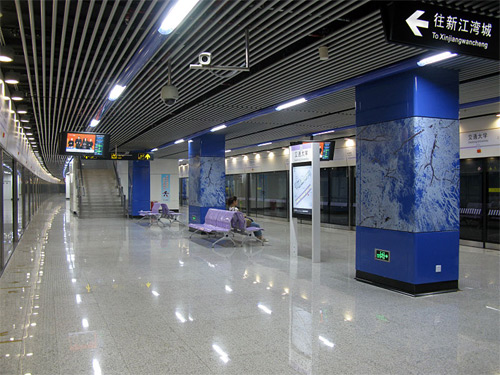
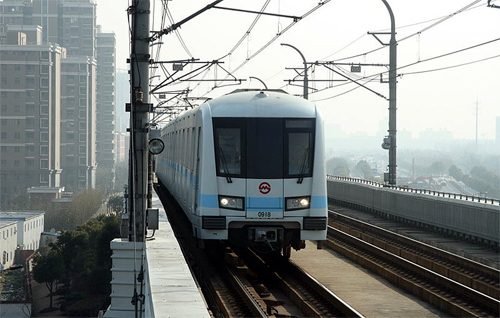
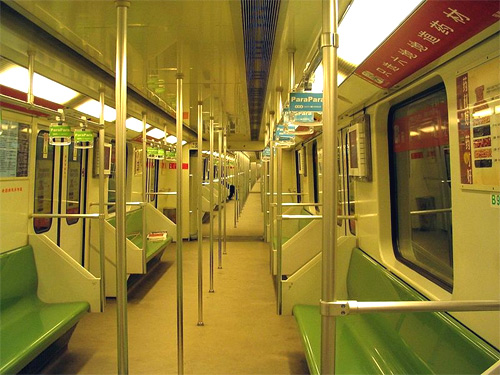
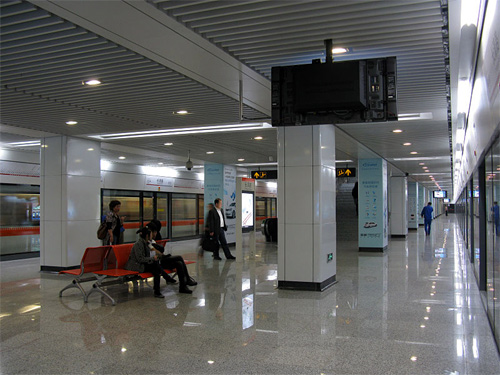
article